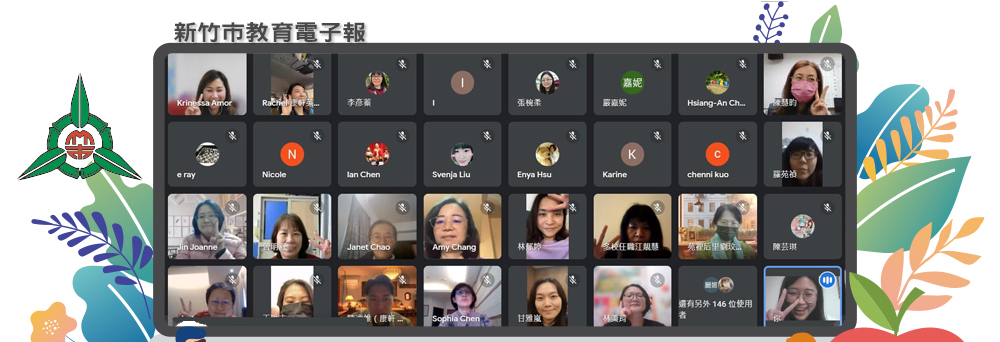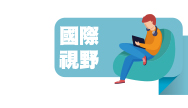

 |
 |
 |
 |
 |
 |
 |
 |
|||||||||||
|
《ABSTRACT》 This narrative explains the writer’s desire to bring about collaboration in the education system in Taiwan to strengthen the curriculum and achieve the goal of bilingualism. The desire deepened after some training programs that she held online, with other teachers all over the island.
Delgado (2019) article claimed that Taiwan has great regard for its teachers because it ranked in the top three of the ten nations where teachers are most respected. According to this article from Institute for the Future of Education online there are some from other countries that consider teachers as social workers, nurses, librarians, someone in a local government position, and a medic. Moreover, I have read a worthwhile study that claimed teachers are social engineers. It characterizes an enthusiastic, creative, and energetic teacher as the backbone of our society. Dr. Rana (2017) mentioned that teachers have a multi-dimensional role in the learners’ life and in the community. A teacher is a student motivator as well as a learning facilitator. The teacher is regarded as both a classroom manager and an architect of the country. A teacher is a decision-maker and leader in education who has a direct and an indirect impact on the students. A teacher is essential to the development of society since they help to mold the national perspective. And the teacher keeps up solid relationships with parents and other community members since these connections indirectly prepare kids for societal challenges. The backbone of society is the teacher, who has the power to shape a student's personality. But it breaks my heart to watch some teachers as little more than caregivers or social workers for the students, especially in underdeveloped countries. The value of a teacher has not been as grand anymore as when we have those great teachers like Aristotle, Mandela, Luther King, and the great Confucius who are looked up on because they are teachers. Nowadays, students tend to leave school earlier and refuse to study anymore. What is the root of all the mess? Is it the teaching style, the students’ upbringing, the societal issues, the nature of the world now, or where? This a question that can be debated upon, but most of all can be discussed over a meeting, training, a workshop, or a simple memo to address the issue in the school. We, teachers, are the second parents of the children we are handling. Whatever label we get may it be a social engineer or a social worker, we should live up to our oath that we promised to give knowledge to our students to the utmost of our ability. We, teachers, should possess immense knowledge on various issues that affect our daily lives as a community of human beings. And we teachers should not only be focused on what we are teaching, but we should also focus on the values we teach the students or reflect in front of the students. Keep in mind that children are like sponges they absorb whatever they see which is a good reminder for us to keep the good and remove the bad. I had the opportunity to conduct training sessions through Google Meet for some teachers in Taiwan on how to introduce the brand-new book Wonder World to Grade 3 classes. By nature I am an introverted person, I rarely talk because I savor the quiet moment for me to think and develop new ideas, but being in a foreign land I realized my style of teaching can help other teachers and that I can know their own difficulties and victories in teaching. I loved indulging myself with new challenges and I loved making new friends after the training. I love to take the chance to teach some nice teachers who are willing to learn and who are equally creative and competitive too. I wonder how my ideas can change their perspective on teaching and learning. My very first training has left me flabbergasted over the fact that I received so many well wishes and encouraging messages from my attendees. I taught them about how simple games in their mind can be made exciting in class. I also used some templated games. I had a good time sharing about free online websites to make cute PowerPoint Presentations and some online tools for games as well. The nature of the training was super online-friendly, they were asked to type some questions that I can answer after my discussion. I checked if they easily grasp the idea of how the book will be used as teaching material and I gave some game ideas to play with the students. When I told them about the easy game "Guess the Color," many of them responded, "If you didn't share it, it will never cross my thoughts." You will only see one object in this game, such as this class shirt in the colors of black and white. To determine the color, there will be two groups to guess. To see who can guess first, you can toss a coin or play paper, scissors, stone. The educators adored it. Likewise, when the class played it.
It is indeed the reason why I believed teachers should have a friendly training where they can collaborate and share new ideas freely without the fear of being judged because they can create games that they will never think of if they are alone. Some of them even used their time to collaborate with me after the training. Some simple questions like how my students address me in class and outside class if they have to call me Teacher or just my name. Those questions sound petty to some but to be honest we do not know what is the right answer to anything, because I want to bring about the time again when teachers are highly-valued professionals I told the teacher to always let the students practice respect. Simply using the word “Teacher before the teacher’s name” draws respect like in the old times when someone calls the teacher ‘rabbi’ or ‘sir’. In the training, I also never forgot my reason as a teacher. I used my time to tell the teachers to never forget to inculcate moral values in our students in English. It seemed to be a little hard for us foreign teachers to do that in class because we are not given a chance to have a reading class where we can use a story to impart moral values and we only have a limited 40-minute class each week that is filled with the book lessons already. Therefore, I shared with the teachers a sample of my lesson where I use the first slide of my lesson to give a lesson to the students about life because I know they have more time to be with students in their respective classes. Then, why am I encouraging collaboration? The reasons are highlighted below:
2. Teachers Build Lesson Plans that Work Teachers may gather in groups to review and revise their lesson plans. They can remove a topic that is unnecessary and use a better option based on the practices that they believed are more worthy to put in. This is a secure and encouraging atmosphere for educators to discuss their successes and challenges. Teachers can review classes with one another and revise them based on the group's collective wisdom. They then test the revised lesson with actual students and report back to the group on the outcomes. As a result, teachings are constructed and evaluated reflectively. For instance, the group can alter the activity instructions to ensure that the students can concentrate on the subject matter itself if teachers discover that process questions overwhelm pupils.
3. Teacher Collaboration Contributes to Higher Student Achievement When teachers get the time to collaborate, students directly benefit. Increasing their effectiveness and resource knowledge is a straightforward way teachers can increase their student’s chances for academic success. For example, when teachers carefully scrutinize lesson plans, students benefit from the experience of several experts, which creates dynamic, engaging lessons. When teachers thrive, so do students.
I included this quotation in my PowerPoint Presentation last time “A wise teacher once said: Use a variety of teaching methods, such as lectures, discussions, and hands-on activities, to keep students engaged and interested.” this is a very true notion that is why we need to collaborate so that we will not stick on our own knowledge only but to collaborate with other teachers.
While conducting training at the start of this month of February, I recalled hearing the song's words, "Together we stand, divided we fall." This serves as a helpful reminder for us teachers that if we cooperate, we can succeed, but if we clash, we will fail. In the Philippines there is time for teachers to collaborate it is known as INSET, a government-funded training program that gathers teachers for a 3-day training either in the middle of the school year or before the start of the semester to allow them to collaborate and share a variety of activities and practices that teachers get involved in order to enrich their knowledge, improve their teaching abilities, and also help them become more effective. This is what comes to my mind when I was asked to write an article about the collaboration of teachers. Taiwan needs to enrich the teachers’ ability to use English more and more now and collaborate more with some English material for the future success of Bilingual 2030. |



